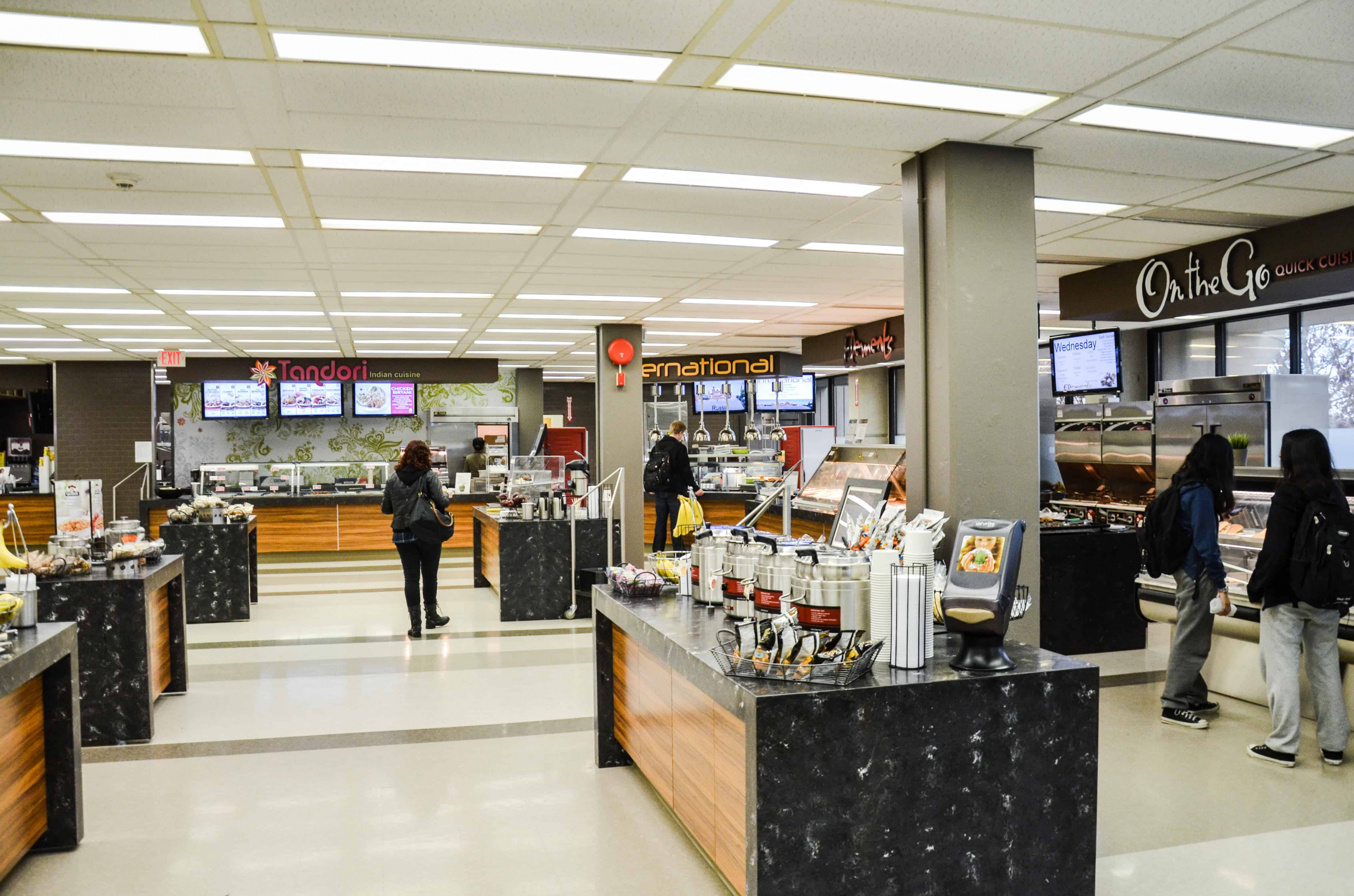A task force initially established to investigate the quality of food services at the University of Toronto Mississauga (UTM) has now expanded province-wide, after the idea was adopted by the Canadian Federation of Students-Ontario (CFS-O). The task force is mandated to investigate food options on campuses, examining issues including price, quality, and availability.
“Why are meal plans increasing in price? Why are costs going up and food quality is going down? Students aren’t happy, and this task force is about investigating food services across campus,” said Munib Sajjad, vice-president, university affairs for the University of Toronto Students’ Union (UTSU) and a UTM student.
The investigation is expected to explore ways of promoting more diverse food options on campus. According to Grace Guo, vice-president, external affairs at University of Toronto Mississauga Students’ Union (UTMSU), the goal is to better accommodate students’ needs and diversity by ensuring clearly-identified options like Halal, Kosher, vegetarian, and vegan.
“Our main goal is to be an active actor around the food services on campus, from hosting town halls to consult students, to distributing surveys to collect feedback,” says Guo.
While the task force based at UTM has been steadily progressing, the process has been slowed by corporate and administrative reticence to release information. The task force at UTM will continue with its work while the CFS-O convenes a larger body to conduct a province-wide inquiry. One of the biggest delays, says Sajjad, is the fact that the contract between Chartwells, the food service provider at UTM, and the university is not fully available to the public.
Under the food service contract signed in 2004, Chartwells is responsible for most of the operational tasks for food services at UTM. These include operating the food service outlets, managing staff, providing recipes and nutritional analysis, marketing the facilities, and providing catering and cleaning. According to Paul Donoghue, chief administrative officer at UTM, the financial terms of the contract are considered to be proprietary commercial information, and are therefore confidential.
Although the non-confidential elements of the contract have been shared — specifically, the key operating context and the nature of exclusivity — Sajjad says that isn’t enough. He says the union was only able to see the summary, which didn’t indicate price, inflation, quality, or diversity of food on campus.
“I thoroughly believe companies like Chartwells are witholding information from students on the way things run. We need to see the financial aspects of the report in order to make changes that benefit students and allow them to be part of the decision making structure,” he says.
Guo adds that not being able to see the contract is problematic because the union does not have all of the nessary information.
Donoghue points to several channels where student involvement in the decision-making process is encouraged: the UTM Residence Student Dining Committee, the Food Advisory Committee, customer comment boards, the Chartwells online Dine on Campus comment page, UTM community food service surveys, and open dialogue with the Hospitality and Retail Operations.
“We welcome any opportunity for input from the UTM community and look forward to continuing to be guided by that input and advice. With that guidance, over the past five years UTM has made significant improvements and changes in our food services,” says Donoghue.
Since the task force began, both the UTSU and UTMSU have been gathering student feedback and opinions through food surveys distributed in hard copy or found online on the unions’ websites. Students’ opinions are then processed and delivered to the Hospitality and Retail Services department.
“We want to bring everything we heard from students to Hospitality Services, along with Faculty and staff of UTM to make UTM student food experiences a great one,” says Guo.
Following a decision by the CFS-O, the UTM task force on food services is now part of a wider initiative stretching across Ontario. Ten campuses, including Ryerson, York, and Lakehead, have been actively involved, and since the campaign kicked off last summer, 5,000 paper copies of surveys have been collected, with 3,000 responses online.
“Food services on campus really is an important issue to students in Ontario and it has definitely been something people prioritize. We’ve been seeing some great results,” says Sarah Jayne-King, CFS-O chair.
The CFS-O has been helping to provide participating universities material province-wide, including surveys for individual campus groups and student unions. After the February 15 deadline to submit surveys, the CFS will put together a final report that will summarize the findings and provide recommendations to improve food services across the province.
The report is set to be prepared over the summer, and will be used as a resource for students and unions to engage campuses about ways to improve campus food facilities.


